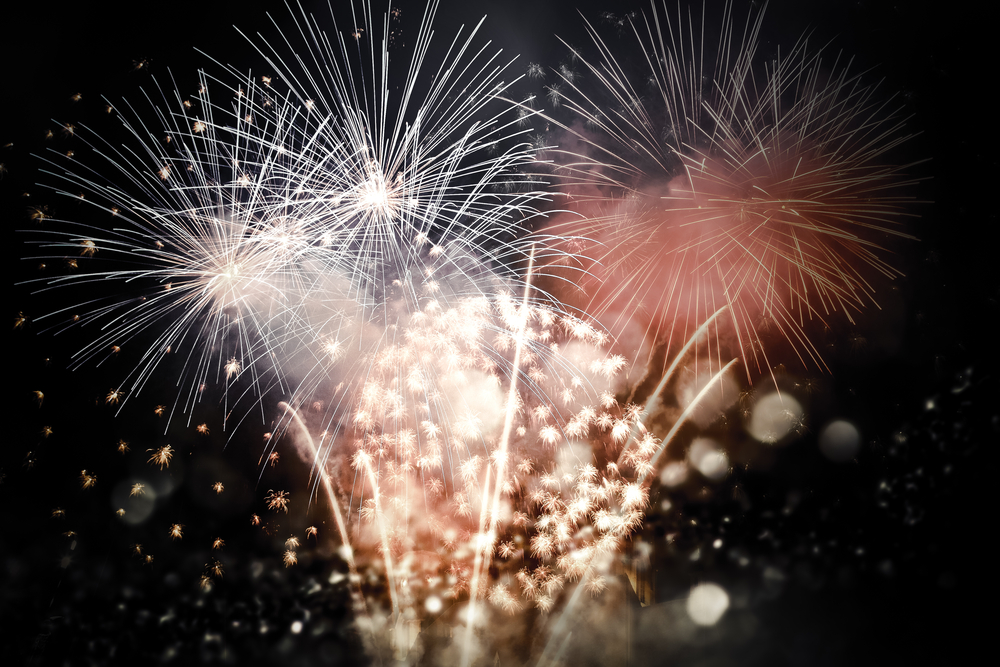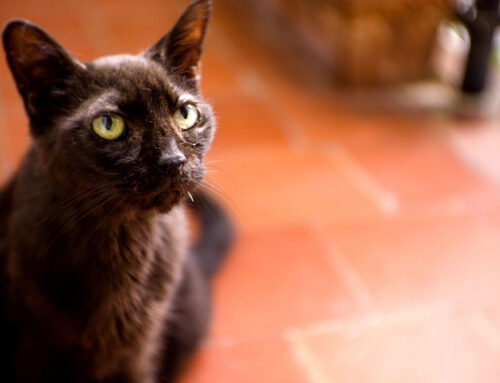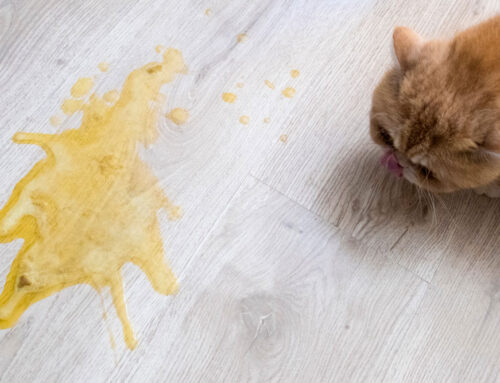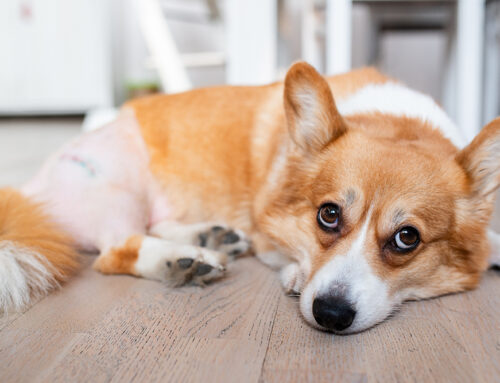Who doesn’t love a good fireworks show? The crowd’s oohs and aahs demonstrate how much we enjoy celebrating Independence Day, but our pets often experience fear, stress, and danger as they contend with fireworks noise, crowds, loud parties, and harmful holiday food and items. The LaGrange Veterinary Hospital team wants to help pet owners see July Fourth from their pets’ points of view so they will take steps to keep them comfortable and safe.
DO keep pets indoors
Loud fireworks often terrify pets, who can panic and may run away or become injured. Keep your pets indoors during a fireworks display, and keep them leashed or in fenced areas during the weeks before and after celebrations when stray noises are common. Inside, create a safe, quiet, comfortable space for your pet, play calming music, or reduce the noise with a white noise machine.
DON’T give pets human foods
Many human party foods, such as chocolate, alcohol, onions, corn cobs, and rib and chicken bones, can be harmful or toxic to pets. Keep your pet on a regular diet throughout the holiday celebrations to help prevent poisoning, gastrointestinal (GI) obstructions, and stress-related diarrhea. Request that guests not feed your pets their food, and ensure a container of their normal food or treats is available for them to hand out.
DO update your pet’s identification
More pets go missing during July than in any other month. If your pet escapes during a party or is scared by loud noises and runs away, up-to-date identification increases the chances of a quick reunion. Ensure your pet’s collar has a current ID tag and your pet’s microchip registry information is up-to-date. If your pet isn’t chipped, ask our team for details.
DON’T discharge fireworks near pets
Fireworks can not only frighten pets but also physically endanger them. Fireworks may contain substances toxic to pets or cause burns and injuries if a pet is too close when one ignites. Keep all fireworks, including sparklers, away from pets and securely store unused items.
DO identify and prepare for pet anxiety and stress
Anxious pets who don’t like loud noise shouldn’t have to suffer through the entire fireworks show. If your pet shakes, drools, pants, paces, refuses to eat, or tries to escape when they hear the dreaded booms, they likely suffer from noise aversion—a treatable pet health condition. Consult our veterinary team about anti-anxiety medications or supplements you can give in advance of the event, or calming products that can help anxious pets cope.
DON’T ignore pet distress signs
Ignoring your pet’s distress signs won’t make their noise phobia go away. Instead, the opposite can happen—pets can get worse with each repeated event and may develop additional noise sensitivities, such as thunderstorms. Panicking pets cannot think clearly and may injure themselves or damage your home. If your pet was stressed last year, consult our team in advance to develop a plan.
DO plan ahead for pet safety

Planning ahead can significantly improve your pet’s comfort and safety during the celebrations. Set up your pet’s safe, quiet, indoor space in advance so they have time to acclimate and feel comfortable. If you plan to administer our prescription anti-anxiety medications or sedatives, do a trial run at least a week or two before the event to check your pet’s response and to make adjustments as needed.
July Fourth can be challenging for pets, but preparation and planning can help ensure their safety and comfort. The LaGrange Veterinary Hospital team encourages pet owners to schedule a pre-holiday consultation to develop an effective, stress-free plan that may include prescription medications or over-the-counter calming products. We want you and your pet to enjoy a worry-free day.








Leave A Comment